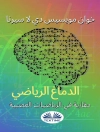A groundbreaking textbook on twenty-first-century plasma physics and its applications
Kip Thorne and Roger Blandford’s monumental Modern Classical Physics is now available in five stand-alone volumes that make ideal textbooks for individual graduate or advanced undergraduate courses on statistical physics; optics; elasticity and fluid dynamics; plasma physics; and relativity and cosmology. Each volume teaches the fundamental concepts, emphasizes modern, real-world applications, and gives students a physical and intuitive understanding of the subject.
Plasma Physics provides an essential introduction to the subject. A gas that is significantly ionized, usually by heating or photons, a plasma is composed of electrons and ions and sometimes has an embedded or confining magnetic field. Plasmas play a major role in many contemporary applications, phenomena, and fields, including attempts to achieve controlled thermonuclear fusion using magnetic or inertial confinement; in explanations of radio wave propagation in the ionosphere and the behavior of the solar corona and wind; and in astrophysics, where plasmas are responsible for emission throughout the electromagnetic spectrum, including from black holes, highly magnetized neutron stars, and ultrarelativistic outflows. The book also can serve as supplementary reading for many other courses, including in astrophysics, geophysics, and controlled fusion.
- Includes many exercise problems
- Features color figures, suggestions for further reading, extensive cross-references, and a detailed index
- Optional “Track 2” sections make this an ideal book for a one-quarter or one-semester course
- An online illustration package is available to professors
The five volumes, which are available individually as paperbacks and ebooks, are Statistical Physics; Optics; Elasticity and Fluid Dynamics; Plasma Physics; and Relativity and Cosmology.
เกี่ยวกับผู้แต่ง
Kip S. Thorne, winner of the Nobel Prize in physics, is the Feynman Professor Emeritus of Theoretical Physics at Caltech. His books include
Gravitation (Princeton) and
Black Holes and Time Warps: Einstein’s Outrageous Legacy.
Roger D. Blandford, winner of the Crafoord and Shaw prizes in astronomy, is the Luke Blossom Professor in the School of Humanities and Sciences and founding director of the Kavli Institute for Particle Astrophysics and Cosmology at Stanford University.












